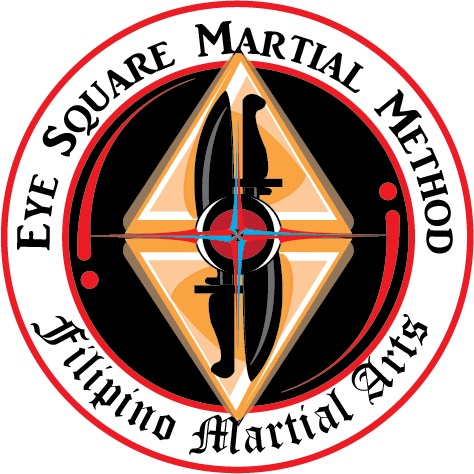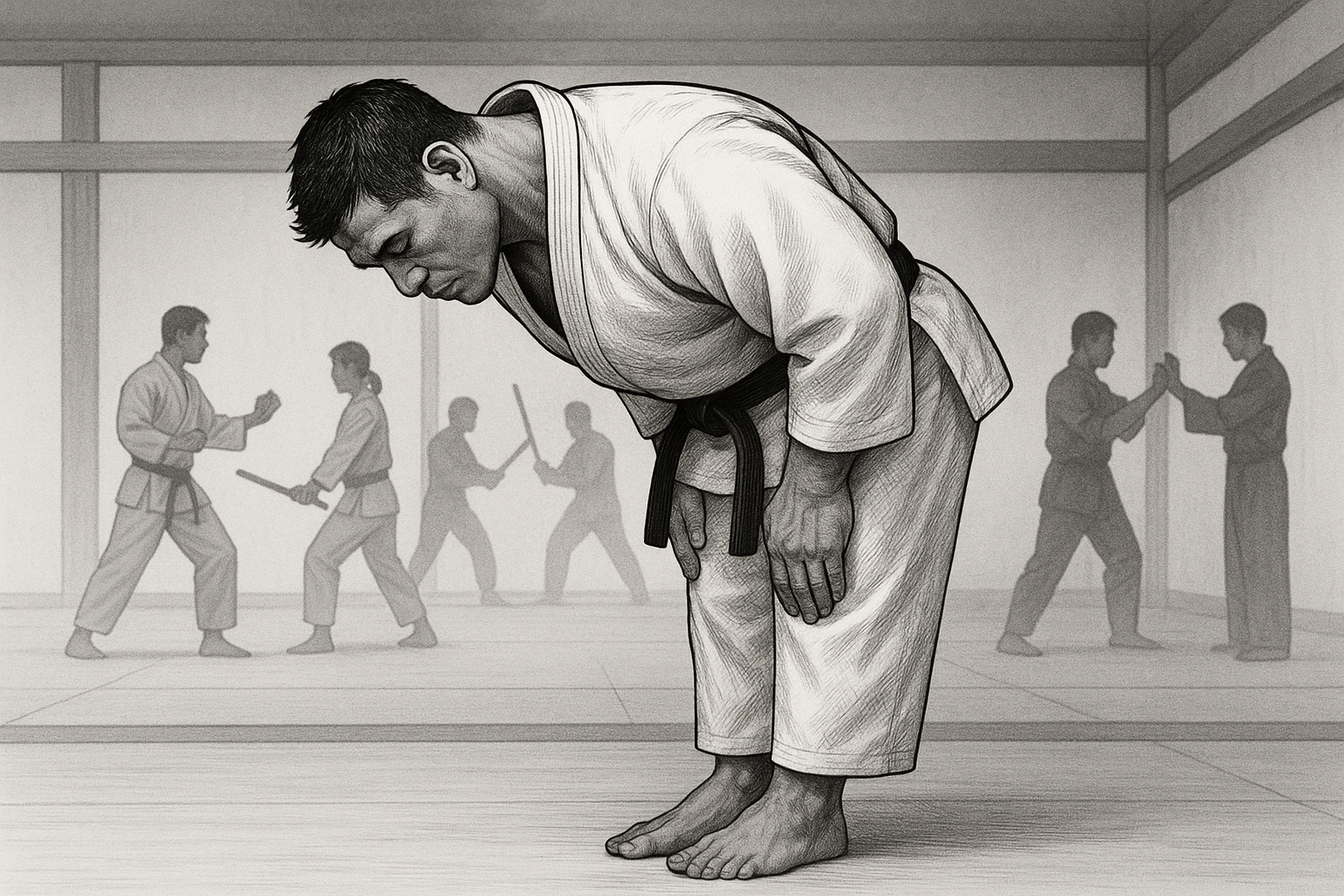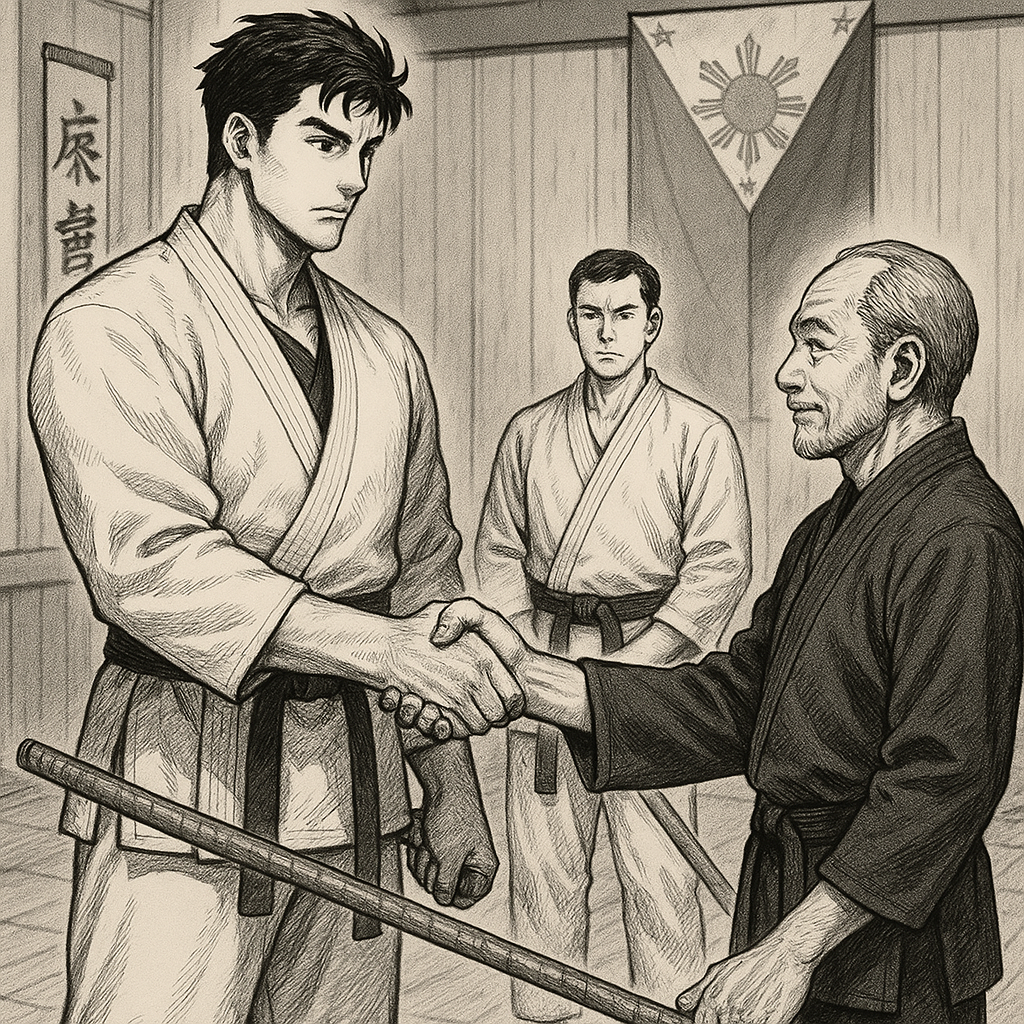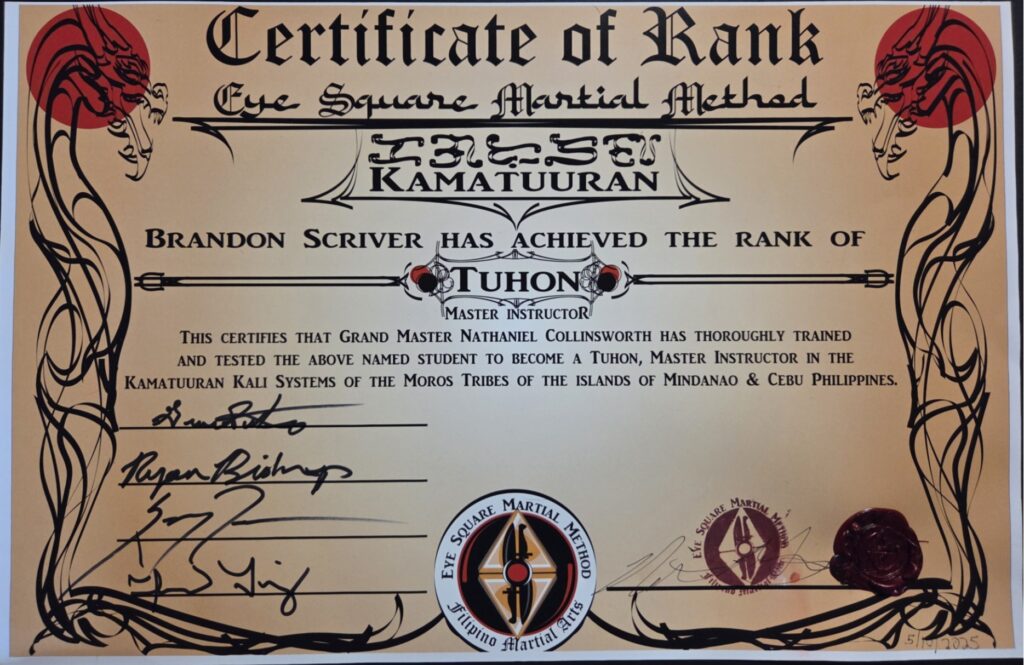When people first see Filipino Martial Arts in action — especially Kali — they often ask:
“Wait… isn’t this supposed to be a blade art?
Then why are you using sticks?”
It’s a fair question. At Eye Square Martial Arts, we train with sticks every day — but make no mistake: Kali is a blade-based system at its core. The stick is just the starting point.
Let’s break down why.
⚔️ A Blade Art with Blunt Tools
Kali, Arnis, and Eskrima all share a bladed lineage.
Historically, the indigenous fighting arts of the Philippines focused on blades — swords like the kalis, bolo, ginunting, and kampilan. These weren’t ceremonial; they were tools of survival and resistance used against invading forces, pirates, and other warriors.
But modern practitioners don’t usually train with live blades. Instead, we use rattan sticks — for reasons that are both practical and strategic.
🥢 Why the Stick Replaces the Sword in Training
✅ 1. Safety
Let’s start with the obvious: we like our students in one piece.
A rattan stick allows you to train full speed, full contact, and with intensity — without slicing your partner open.
✅ 2. Mechanical Similarity
The angles, lines, and mechanics of a stick swing closely mimic the motion of a blade. Whether it’s a slash, thrust, or block, the fundamental movement remains the same — even if the tool changes.
What you learn with a stick can be seamlessly transferred to a blade.
✅ 3. Training Economy
Rattan sticks are:
- Lightweight
- Affordable
- Durable
- Easy to replace
Training with blades would be expensive, dangerous, and… well, legally problematic in public parks.
✅ 4. Historical Adaptation
During the Spanish occupation of the Philippines, native blade arts were often banned. To preserve their systems, Filipino warriors adapted their techniques into stick-based drills, passing down deadly knowledge disguised as “games” or “sports.”
The stick became a cultural container for the blade.
🧠 It’s Not About the Weapon — It’s About the Method
At Eye Square Martial Arts, we teach that the weapon is just an extension of the practitioner.
Whether you’re holding a stick, a blade, a flashlight, or a rolled-up magazine — the movement stays the same. What matters is:
- Angle of attack
- Footwork
- Timing
- Targeting
- Intent
The stick just gives us a safe and effective way to drill it all.
🧭 Takeaway: Sticks Are the Blade’s Training Ground
The next time you see someone swinging a rattan stick in FMA, don’t see it as “just a stick.”
See it as a blade in disguise.
And more importantly — as a legacy that’s still alive, still evolving, and still very much capable of cutting through modern threats.
📌 Next in the Series
Think fire-hardened rattan can shatter a steel blade?
Think again.
Up next: “Can Fire-Hardened Rattan Shatter Steel?” (Myth Busted)
🥋 Want to Train with Us?
Whether you’re curious about sticks, blades, or bare hands — we train it all, right here in Cache Valley.
🗯 Cultural Preservation… with Bruises.




